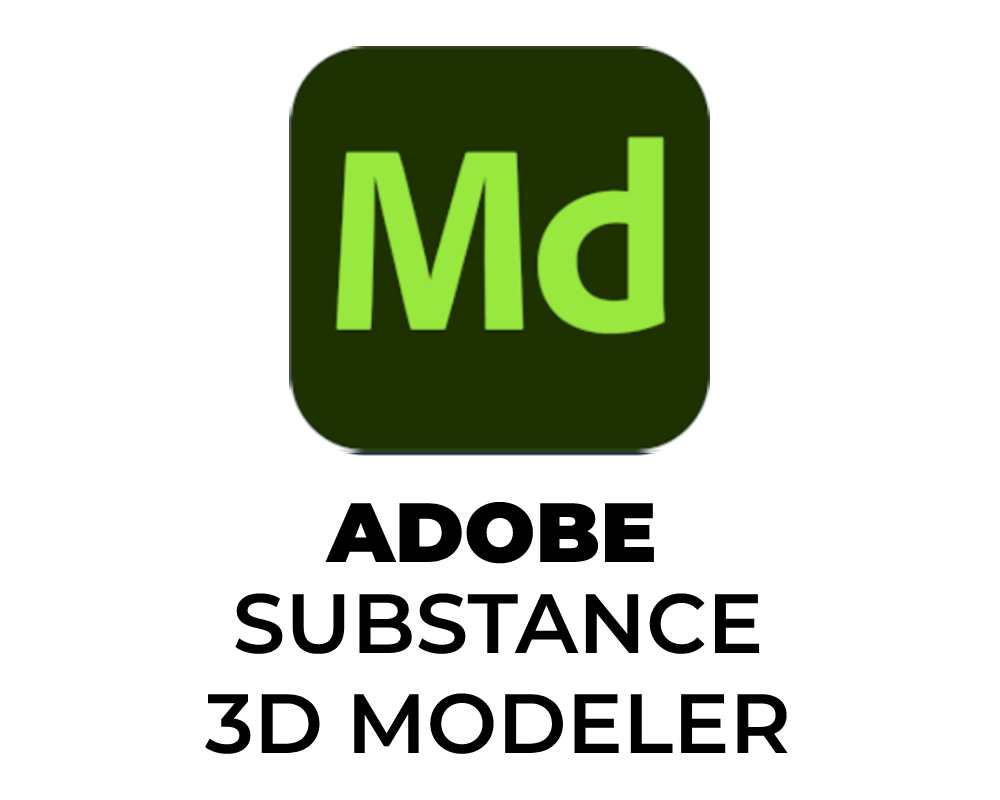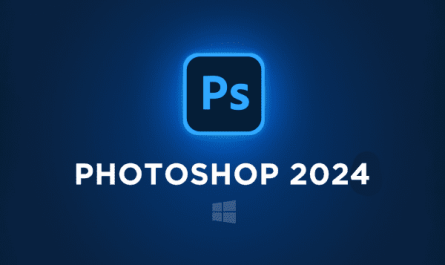During the beta phase, Substance 3D Modeler has garnered praise for its versatility. The application supports a range of 3D tools, making it a go-to choice for artists engaged in diverse projects. The Substance 3D team has actively encouraged user feedback, incorporating valuable insights to refine and enhance the modeling experience.

In addition to the desktop and VR capabilities, the Substance 3D Modeler is designed for collaboration. With a built-in link feature, users can easily share their work with colleagues or clients. This functionality promotes a streamlined workflow, fostering efficient communication and creative synergy within the design community.
The Substance 3D Modeler subscription model introduces a medium between free access and premium features. Users can opt for a subscription to unlock additional tools and assets, enhancing their modeling capabilities. This subscription model aims to sustain the development of the application while still providing a valuable free version for those on a budget.
One standout feature of Substance 3D Modeler is its integration with Oculus Medium, a popular sculpting application in the VR realm. This collaboration expands the possibilities for artists, allowing them to seamlessly import and export models between the two applications. This interconnected ecosystem further solidifies Substance 3D Modeler as a versatile and collaborative tool for creators.
Navigating the interface is a breeze, whether you prefer the traditional mouse and keyboard setup or the tactile experience of VR controllers. The application’s intuitive design ensures that both beginners and experienced modelers can find their way around with ease.
As the official website states, Substance 3D Modeler aims to let creators find their modeler. With a focus on accessibility, collaboration, and innovation, the application has indeed become a valuable asset in the toolkit of 3D artists worldwide. The crack in the conventional barriers of 3D design is widening, thanks to Substance 3D Modeler, and its journey from open beta to a fully realized and widely adopted tool is a testament to its commitment to shaping the future of digital creativity.
The Key Features of Adobe Substance 3D Modeler:
- Free Accessibility: Adobe Substance 3D Modeler is available as a free application, making it accessible to a broad audience of digital artists. This democratization of 3D modeling tools ensures that creators with varying skill levels and budgets can harness its capabilities.
- Desktop and VR Integration: The application seamlessly integrates both desktop and virtual reality (VR) environments. Users can transition between traditional desktop setups and immersive VR experiences, allowing for a flexible and dynamic workflow.
- VR Mode 1.0 and Open Beta: Adobe Substance 3D Modeler offers a dedicated VR mode, providing users with a tactile and immersive approach to sculpting and modeling. The VR mode, currently in open beta, allows for an interactive and engaging 3D design experience.
- Versatile 3D Tool Support: The application supports a wide range of 3D tools, making it a comprehensive solution for various design projects. This versatility ensures that users can choose the tools that best suit their specific needs and preferences.
- Collaboration Features: Adobe Substance 3D Modeler includes built-in collaboration features, such as a link function. This allows users to easily share their work with colleagues or clients, streamlining the collaborative design process and enhancing creative synergy.
- Subscription Model: While offering a free version, Adobe Substance 3D Modeler also provides a subscription model. This subscription unlocks additional tools and assets, offering a more comprehensive set of features for users who require advanced capabilities.
- Integration with Oculus Medium: Adobe Substance 3D Modeler collaborates with Oculus Medium, a popular VR sculpting application. This integration enables users to seamlessly import and export models between the two applications, expanding the creative possibilities for artists working in virtual reality.
- User-Friendly Interface: The application features an intuitive and user-friendly interface. Whether using a traditional mouse and keyboard or VR controllers, the design ensures that both beginners and experienced modelers can navigate the software with ease.
- Active Development and Community Engagement: Adobe Substance 3D Modeler is actively developed, with the development team encouraging user feedback during beta phases. This commitment to community engagement allows for continuous improvement and refinement of the application based on user insights.
- Goal of Empowering Creators: As stated on the official website, Adobe Substance 3D Modeler aims to let creators find their modeler. This reflects the application’s overarching goal of empowering artists by providing a flexible, accessible, and innovative tool for 3D design.
What is Adobe Substance 3D Modeler and How Does It Work?
Overview of Adobe Substance 3D Modeler
Adobe Substance 3D Modeler is a powerful software application that empowers users to create stunning 3D models with ease. It is designed to provide an intuitive and efficient workflow, allowing artists to focus on the creative process rather than getting bogged down by technical complexities.
Key Features of Adobe Substance 3D Modeler
Adobe Substance 3D Modeler offers a wide array of features, including support for both VR and desktop modes, sculpting tools, and the ability to import and export models in various formats such as OBJ, FBX, and USD. It also includes powerful texture painting capabilities and supports parametric and signed distance fields, making it a versatile tool for creating complex models.
How to Get Started with Adobe Substance 3D Modeler
Getting started with Adobe Substance 3D Modeler is easy, as it provides a user-friendly interface and extensive documentation. Users can download the software, subscribe to the official Adobe Substance 3D Modeler website, and access a wide range of resources to help them explore and master the application.
Why Use Adobe Substance 3D Modeler for Your 3D Modeling Projects?
Benefits of Using Adobe Substance 3D Modeler
Adobe Substance 3D Modeler offers numerous benefits, including a focus on the creative process, seamless integration of VR technology, and the flexibility to work in both VR and desktop modes. Its sculpting software and support for a wide range of formats make it an ideal choice for creating high-quality 3D models.
Comparison with Other 3D Modeling Software
When compared to other 3D modeling software, Adobe Substance 3D Modeler stands out with its intuitive interface, extensive support for VR and desktop modes, and a focus on organic sculpting and creative expression. Its seamless integration with popular VR headsets such as Meta Quest Pro and Oculus Rift further enhances its appeal.
Workflow Enhancements with Adobe Substance 3D Modeler
Adobe Substance 3D Modeler makes workflow enhancements a priority, with features such as sculpting tools, texture painting capabilities, and support for a wide range of applications. Its focus on the creative process enables artists to streamline their workflow and bring their 3D modeling projects to life with ease.
How to Create High-Quality 3D Models with Adobe Substance 3D Modeler
Step-by-Step Guide to Creating 3D Models in Adobe Substance 3D Modeler
Creating high-quality 3D models in Adobe Substance 3D Modeler involves a step-by-step process, starting from importing a base mesh or primitive object and sculpting and refining the model with intuitive sculpting tools. Users can then paint textures, assemble the model, and export it in various formats to suit their specific requirements.
Tips for Optimizing 3D Models in Adobe Substance 3D Modeler
To optimize 3D models in Adobe Substance 3D Modeler, users can focus on efficient polygon topology, UV mapping, and sculpting tools to add intricate detail. The application provides resources such as Discord and Reddit communities, as well as wider engine support, to help users optimize their models and achieve exceptional results.
Utilizing VR and Desktop Capabilities for 3D Model Creation
With Adobe Substance 3D Modeler’s support for VR and desktop modes, users can leverage the full capabilities of their VR headset, such as Meta Quest Pro, to sculpt and refine 3D models in an immersive environment. The application’s seamless switch between VR and desktop modes enables an intuitive and efficient 3D model creation process.
Utilizing Adobe Substance 3D Modeler for VR and Desktop 3D Modeling
Integrating VR Technology into 3D Modeling Workflow
Integrating VR technology into the 3D modeling workflow with Adobe Substance 3D Modeler provides a truly immersive experience, allowing artists to sculpt and paint their models in a virtual environment. The application’s seamless integration with VR headsets and intuitive sculpting tools enhance the user experience and enable creativity to flourish.
Features for Desktop 3D Modeling in Adobe Substance 3D Modeler
For desktop 3D modeling, Adobe Substance 3D Modeler offers a diverse set of features, including sculpting tools, texture painting capabilities, and support for a wide range of formats such as OBJ, FBX, and USD. This makes it a versatile and powerful tool for creating high-quality 3D models on a desktop workstation.
Enhancing User Experience with VR and Desktop Modes
Adobe Substance 3D Modeler’s seamless transition between VR and desktop modes enhances the user experience by providing flexibility and convenience. Whether working in a virtual environment or on a desktop computer, artists can leverage the application’s features to create stunning 3D models with ease and precision.
How to Export and Use 3D Models Created in Adobe Substance 3D Modeler
Exporting 3D Models in Different Formats
Adobe Substance 3D Modeler allows users to export their 3D models in various formats such as OBJ, FBX, and USD, ensuring compatibility with a wide range of applications and workflows. This flexibility enables artists to seamlessly integrate their creations into different projects and collaborate with other professionals.
Utilizing Exported 3D Models in Other Applications
Once exported, 3D models created in Adobe Substance 3D Modeler can be utilized in other applications, including game engines, 3D rendering software, and animation platforms. The application’s support for different formats and seamless export capabilities streamline the process of incorporating 3D models into diverse projects.
Sharing 3D Models Created with Adobe Substance 3D Modeler
Sharing 3D models created with Adobe Substance 3D Modeler is made easy, thanks to its support for standard formats and wide compatibility. Whether showcasing work to a client, collaborating with other artists, or contributing to online communities, artists can confidently share their creations and expand their professional network.
How do you download and install Adobe Substance 3D Modeler Crack For Windows?
- First, Click the below Red Download button and shift to the download Page.
- On the Download Page, you will have Download links and other Instructions.
- Please follow the step-by-step guidelines and Install your Software into your Windows.
- If you like our work, don’t forget to share it with your friends and family on Facebook, Twitter, Linked In, and Reddit.
- That’s It. Now enjoy.


